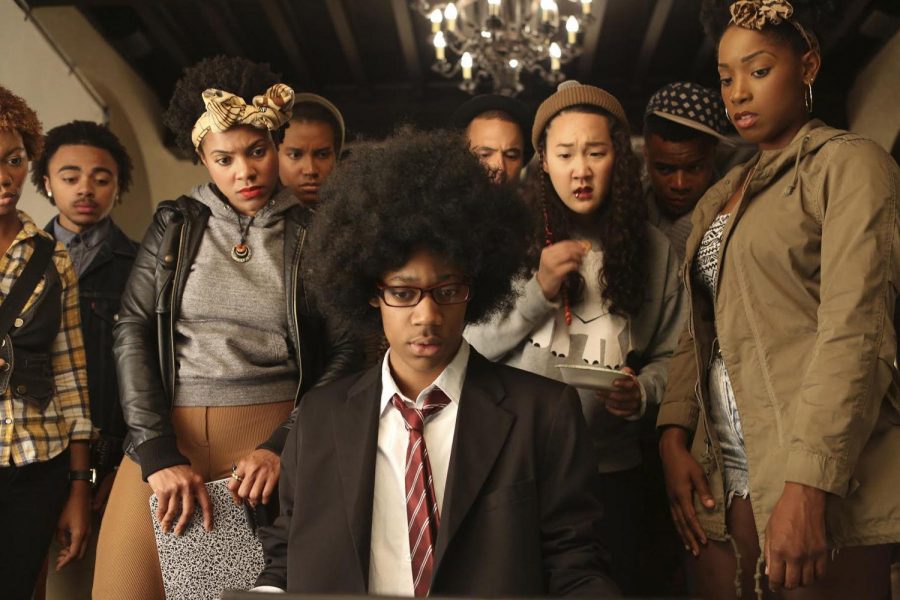More Anderson than Perry: ‘Dear White People’ obliterates stereotypes in sharp satire
November 3, 2014
“Dear White People”
Directed by: Justin Simien
Starring: Tessa Thompson, Tyler James Williams, Brandon P. Bell
Grade: B+
The execution of an argument can be far more important than its substance, especially in politics. “Dear White People” has so much to say, but holds back in order to say only what is necessary.
That being said, the film does not play it safe — it’s an angry, wildly impassioned film that doesn’t let go of the reins and chooses to instead keep its irritation with 21st century racial issues in control. It uses cutthroat calculation to dispel new age social truths with venomous lucidity and, when possible, a great dollop of snarling satire.
In a noble debut, writer-director Justin Simien’s acute critique on today’s racial politics is populated with an excess of lifelike characters (for all the film’s Tyler Perry bashing, it’d be a sad irony if the characters in “White People” were all similar stereotypes) delivering razor-sharp dialogue on serious topics. Simien also utilizes a Wes Anderson-esque style — from the visual symmetry in the chapter title cards to the offbeat, tongue-in-cheek humor — in a successful attempt not only to render the film more digestible for mainstream audiences but also to create valuable and vivacious satire.
One Anderson trope that doesn’t do “Dear White People” any favors is its overabundance of characters and web of subplots. This is acceptable only because each character is given just enough screen time to feel human.
Our central plot revolves around several students at an Ivy League university, primarily Sam White (Tessa Thompson), a quick-witted media arts major who stirs up controversy with her radio segments, including the eponymous “Dear White People,” and her campaign to give black students their own housing once again. Her political opponent is her ex-boyfriend Troy Fairbanks (Brandon P. Bell), who struggles to impress his father who is dean of the college (Dennis Haysbert). Meanwhile, misfit Lionel Higgins (Tyler James Williams), a budding writer, attempts to establish a new social identity with his peers, and video blogger “Coco” Conners (Teyonah Parris) looks to make a name for herself by achieving Internet fame.
As narratively directionless as it may seem, “Dear White People” is a cohesive project despite the minimal scope it creates with its disposable storylines. The loose structure allows its themes of social identity and racial differences to take center frame when it is most important. It may unfold like a play, but “Dear White People” is too poignant and adroit for its narrative faults to detract from the film’s true intentions.
The film’s soundtrack is a curious stylistic choice, incorporating both modern underground hip-hop and recognizable classical selections in equal part, creating an atmosphere that is both stately and cool, mature and relaxed. This eclectic concoction helps smooth over the film’s more tonally grating moments.
Working as a comedy, a drama and above all, a satire, “Dear White People” is a restless, spirited film that embraces tough questions and handles them delicately. It is worth its weight in entertainment value and modern relevance, and it suggests that great things may be to come from Simien.



